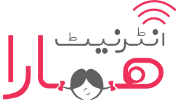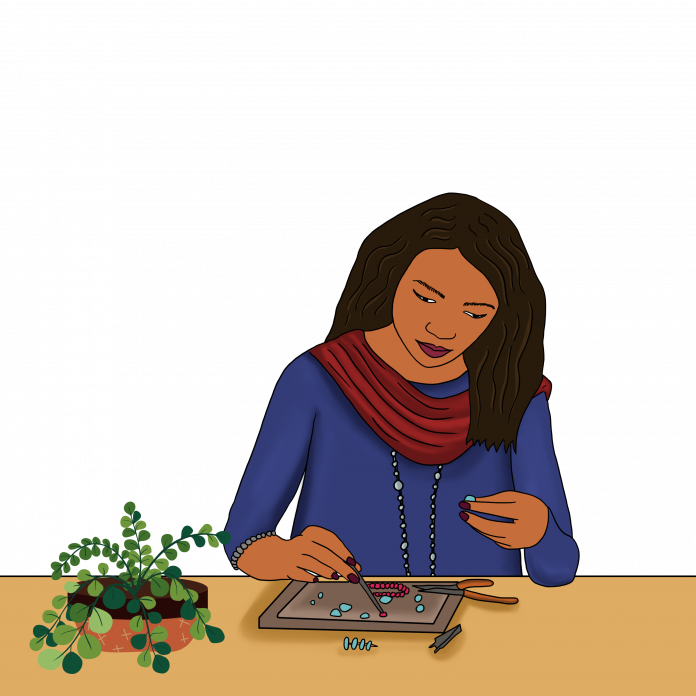By Anmol Irfan
After graduating from the College of Tourism and Hotel Management (COTHM) in Lahore amidst the pandemic last year and spending 6 months training in a commercial kitchen as part of her degree requirements, 24 year old Rimsha Rufee found herself back in her home town in Kasur. Unlike the commercial urban vibe of Lahore, Kasur has a much slower lifestyle and a smaller population and Rufee immediately noticed a huge gap in the culinary market. Between the boredom that stemmed from lockdown, and having a keen eye for what might work around her, Rufee first started indulging in baking cakes at home and was soon inspired to start her own home bakery, Happyyy Bitess while she was on break from her degree due to school closures in the pandemic. When she was selected for her internship at Go Flour, – a Lahore-based cafe that trains and employs women from low-income backgrounds – the young chef put the bakery on hold and moved back to Lahore. Now that she’s back in Kasur, she has big plans for restarting her page and hopes to move on to more than just cakes and hopes to incorporate breads and different kinds of pastries into her menu.
But Rufee shares that without the benefits that social media provides, she may not have been able to start off when she did. “If you don’t do it online and have to do it commercially in a market, you need to rent a space, you need to see how much customers around that area spend on food, you need a good location where that kind of customer base is and you have to invest a lot. Home based online businesses do still need investment but much less. When I started I just bought a few ingredients like chocolate, cocoa powder, and used the beating machine and other tools my mother already had at home,” says Rufee.
Rufee isn’t the only entrepreneur benefiting from e-commerce options, and amidst the pandemic, online businesses have grown fast all over the world. Daraz, Pakistan’s largest online marketplace, reported that orders have increased 9 times since March 2020, and the country is the eighth-largest growing freelance economy. But despite Pakistan’s fast growing population and their contribution to this economy, the role of women within this space has long been neglected. Despite making up more than half of the country’s population, women make up only 22.2 percent of the labour force. Yet while women continue to find it difficult to find equal space within formal work sectors, informal e-commerce engagement amongst women has continued to grow amidst the pandemic.
Many women have found it easier to create their own networks now that online communication is becoming more widespread than fight existing systems that often refuse to give them the same respect as male coworkers. “In Pakistan women are seen as weak compared to men. It’s always the man who gets the higher salary or higher space at a workplace. I think working online has been easier for Pakistani women as they are their own boss and can do whatever they want to do,” says Rabbia Rehan, founder of Emirati Bazaar, an online personal shopping service. Rehan also adds that having her own online venture helped her navigate around other restrictions that could have hindered her in getting a conventional job. “In my case I’ve just completed my A Levels and then I got married. So no, I never imagined running my own company with no university degree and I love the idea of being able to run a business online where you can be the boss and do what you love to do without being questioned. This whole way of getting to work can create job opportunities for so many women who just like me thought that we can’t work because we don’t own that degree. This way women have control on their earnings and have that chance in the workplace to earn money on their own hard work without being discriminated against,” Rehan adds.
Asma Shah, the founder of Go Flour where Rufee did her internship before moving back home also points out that many people also underestimate how online access can unite people across economic barriers. “You’d be surprised at how many women who work with us have smartphones with business accounts. Younger women are more tech savvy and interested in doing business online. Most of the women who we work with have completed their metric at least and they’re more switched on to the possibility of online opportunities,” Shah says.
Where previously Pakistan’s digital growth had been lagging – a lack of access to digital spaces and little awareness around the world of e-commerce, the switch to digital lives amidst the pandemic has pushed both entrepreneurs and consumers to learn how to make the most of the digital world. Sana Ahmad Khan, who started her clothing brand SAK Atelier last year points out the opportunities digital access can give women. You don’t need to be a big, multi-billion company to have a presence in the market anymore. “You can be from any socio-economic background, as long as you have a product that people want and you can connect with them, you have a real fighting chance. Barriers to entry have significantly lowered. The online world is way more egalitarian to all socio-economic backgrounds, genders, religions, races than the offline, physical world ever was,” Khan says, adding that security and flexibility were previously some of the main concerns for working women in Pakistan. It’s so much easier in terms of security, barriers to entry, and flexibility. “As a woman, when starting a business, security is a major concern. But in the virtual world, you almost completely bypass that. Women often don’t have the financial and other resources to start their ventures – being online greatly reduces their barriers to entry. You just need to have a great product or service that fills some gap in the market, connect with your audience and know how to sell. You don’t need 20 brick and mortar stores across 10 cities to launch your online brand,” she adds. In fact it’s this flexibility that benefited Maryam Anis, an A level student, who took the opportunity of benefiting from an online business along with being a full time student. Anis, who runs a home based bakery under the name Mellow by Mimi shares that she wanted to bring quality baked products into the market for a lower price than the average. When online businesses, having lower running costs allows business owners to keep profit margins without overcharging customers and in Anis’s case, allows her to take orders on her own schedule along with her schooling without worrying about going into loss.
Students’ aren’t the only demographic that benefit from flexibility and Khan says she was inspired to start her clothing line after she had her daughter, even though the idea of designing clothes had always appealed to her. “I felt like I needed to balance out my mommy duties with some ‘me’ time…with doing something creative. So I just designed a few pieces and put them up on my blog and ta-daa!,” she says. Her experience balancing parenthood and work is not isolated, and in sharing her personal journey, Khan is opening up the conversation around motherhood and working particularly in a culture where women are often shamed for working because it is seen as taking them away from their motherly duties. For her to have a conversation about needing something for herself as a form of self care allows women to realise that they are not alone, but more importantly it starts up a much needed conversation on what it means to explore work options that accommodate parental leaves.
Despite much acclaimed policies like those passed by the PCB which allows women cricketers up to a year of maternity leave off, there is little understanding or implementation of parental leave policies within conventional workspaces. Women often face discrimination when attempting to re-enter the workforce as mothers, or often can’t come back at all because they can’t manage both parenting and work at the same time. Rufee gives the example of an acquaintance of hers, who as a single mother has found a way to support herself online. “My friend is a single mother and also has an online textile design business, and she’s very talented, but she also has to be home so if she didn’t have the option of doing it online she wouldn’t have been able to start her business,” Rufee says.
As Khan mentioned, another benefit that online businesses bring is the reduced security risk that many women can feel in interacting with strangers or having to frequently visit public spaces. With many women feeling the same way, online spaces have the potential to connect women looking for work and build networks that can help more women be a part of e-commerce spaces. Of course most of these platforms start out small and not everyone has the bandwidth to take on employees at first. When Rehan first started as a mother of two, she had no idea of the potential her venture had. “We were able to make a great profit in the first 6 months that my husband suggested that we should hire someone to handle the instagram account. And that’s when I found Bisma. My first hire. The thought of having someone working for me was just something I never imagined,” she says. Aside from Bisma, Rehan also works in tandem with her mother and grandmother who are in Pakistan as she herself is based in the UAE. “Once I send over the things to Pakistan, that’s when my mom handles deliveries in Karachi and my grandmother in Lahore. If it wasn’t for them offering to take care of this my business would not be where it is today. I feel my way of handling and sending products is very different from the conventional business as I need to manage everything on my own- but for me this is a pro as it’s what works for me,” she adds.
While home-based food businesses are often considered the most common, a look into what’s available online shows that the flexibility of online businesses has allowed women to indulge in their skills and create a business out of them no matter what they are. “A major pro [of online businesses] for the consumers is that they can now finally find products that they could never find at the Gul Ahmads and Sapphires and Khaadis of Pakistan. You like hand painted sarees? There is a small Instagram page selling those. You like swanky art? There is a small Instagram business selling it. You like feminine, minimalist, effortless outfits? There is a small business selling them online. It’s a win-win situation!” Khan shares.
Building these networks and connecting to other women in the community can also overcome one of the cons that Anis points out often accompanies online working. “There’s not much real interaction which can be rather demotivating. I also feel that it can get sort of redundant and there’s not much of a social aspect of work involved,” Anis points out. But as e-commerce amongst Pakistani women continues to grow, more and more women are connecting both as freelancers and community leaders to build social and work-related relationships. Women In Tech PK a 9000 member strong Facebook group started by tech professional Faiza Yousuf. Tech PK is one of those spaces that holds training sessions, connects women who may benefit from each other’s skills and allows women to grow in the digital world within a safe community that encourages them and builds them up. But there is still so much potential within this space that is unrealised, and there needs to be a very real effort in regulating online spaces – and not simply banning them – in a way that is constructive to users and promotes economic growth amongst marginalised groups as well.
Shah points out the need for a greater investment in the digital sphere if we are to see these businesses really take off. “The government should encourage it more through various incentives like providing courses where women can learn how to set up a business online. They need to teach skills like how to market themselves or price their products. If they could help a lot more women could be online,” Shah says. There is a huge potential for women to add to the economy in this way, and there’s still a lot to be realised. What’s most impressive however is how women themselves have taken these individual steps despite structural support and are proving just how much they can achieve in the smallest of spaces.






